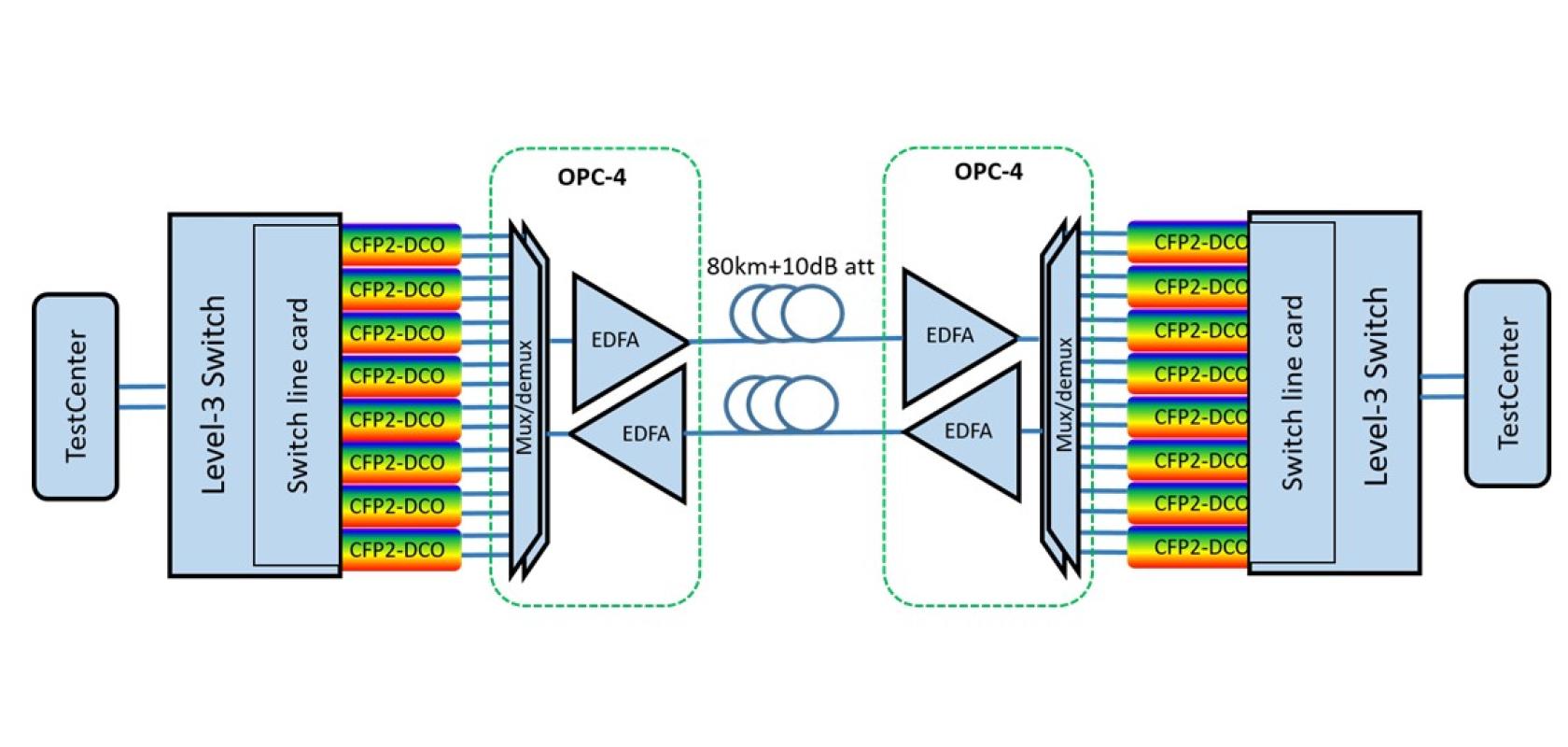Chinese conglomerate, Tencent has completed a 80km fibre transmission of multiple 200G 8QAM signals over its OPC-4 open line system (OLS) using Acacia Communications’ CFP2-DCO modules on third-party switch platforms.
In order to emulate the higher fibre loss in its metro networks, Tencent added additional 10dB optical attenuators to the tested link, and was still able to achieve error-free operation in all the ports. OPC-4, which was developed by Tencent, meets its SDN requirements for a disaggregated transport network and is fully integrated into the company’s network controller. Tencent believes that this lab demonstration validates the deployment readiness of its IP over DWDM solution using OPC-4 in their metro DCI networks.
The demonstration used Acacia’s CFP2-DCO modules with 50GHz channel spacing and 200G 8QAM modulation, which additionally showcase the ability to support transmission of up to 19.2T on a single fibre using Tencent’s 96 channel OPC-4 and Acacia’s CFP2-DCO modules. The demonstration is designed to highlight the value of IP over DWDM and disaggregated solutions to cost-effectively meet the growing bandwidth needs of Tencent’s metro DCI infrastructure.
Acacia’s modules are compliant with the OIF CFP2-DCO Implementation Agreement, which also includes support for next generation 400G solutions, further improving board density and fibre capacity. Based on its Meru DSP ASIC, Acacia’s CFP2-DCO module has been shipping in production since December 2017.
Jengyi Geng, senior network architect at Tencent commented: ‘With Acacia’s 200G CFP2-DCO, our switch platform can support eight ports, for up to 1.6T per line card and our OPC-4 can support transmission of up to 19.2T over a single fibre for metro DCI applications. In addition, the CFP2-DCO form factor provides us with a pay-as-you-grow deployment model.’
Tom Williams, associate vice president of marketing at Acacia Communications added: ‘We believe this lab demonstration underlines the importance of pluggable coherent modules in applications such as Tencent’s metro DCI network, potentially creating opportunities for our NEM customers to offer differentiated solutions in these applications.’


